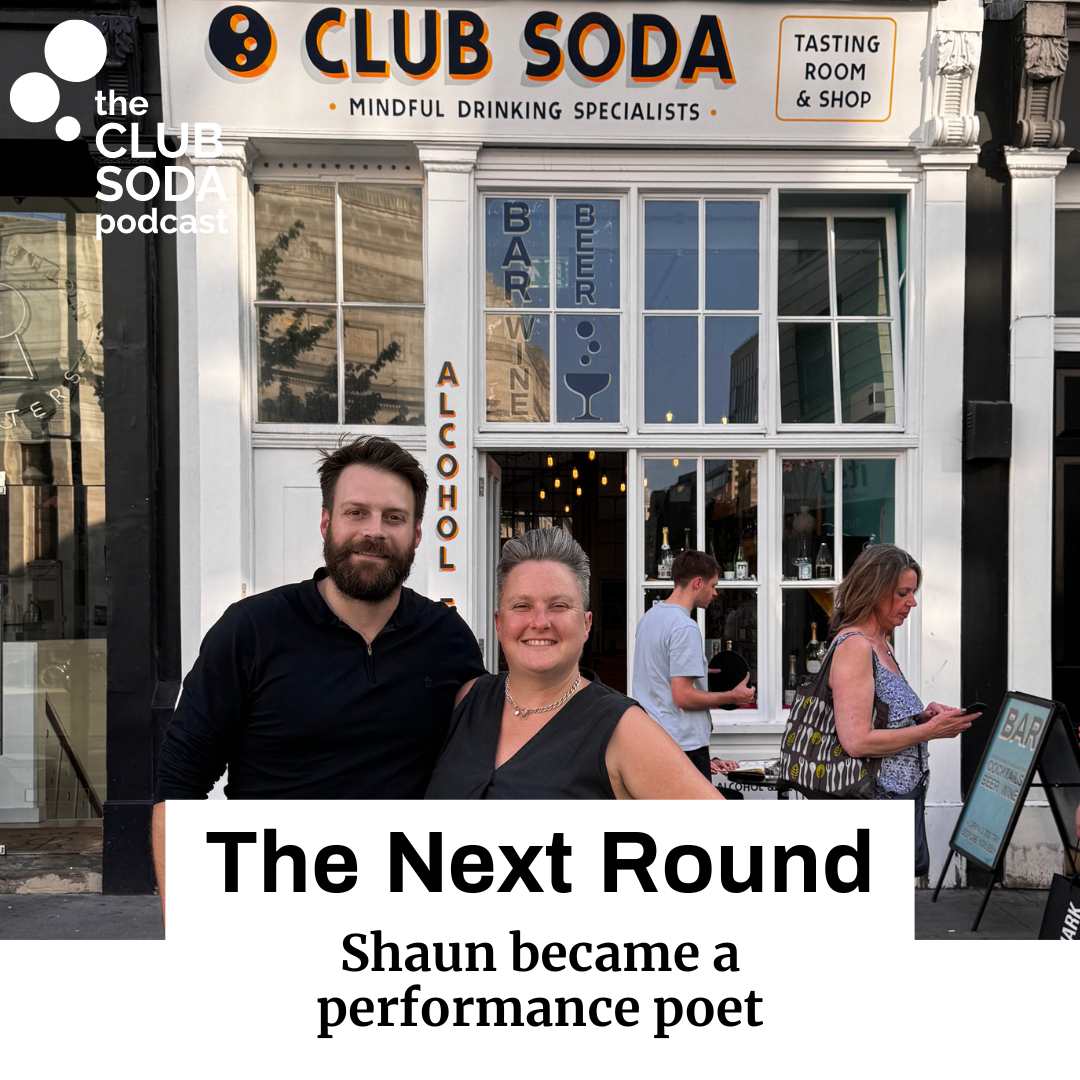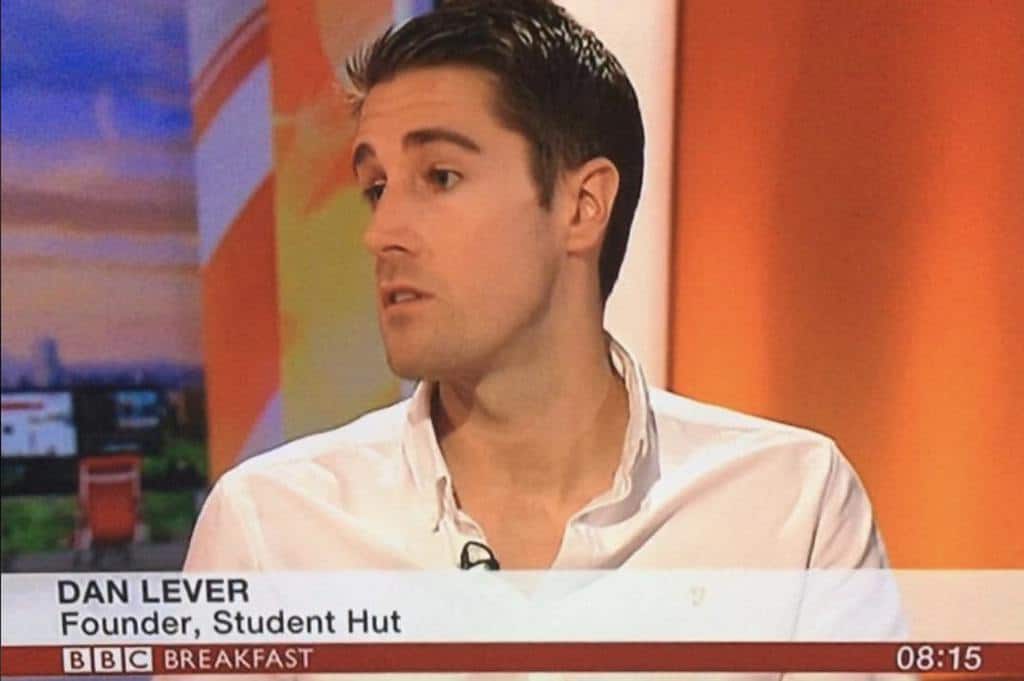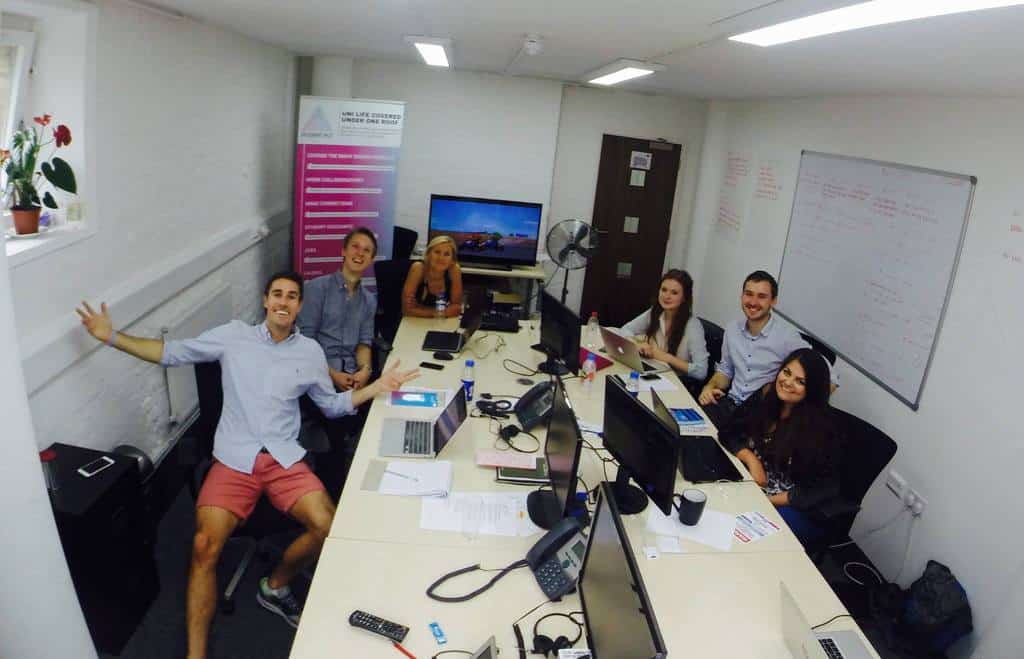
This website uses cookies to improve your experience. We'll assume you're ok with this, but you can opt-out if you wish. Read More
The Next Round: What happens after you change your drinking?

Drinking nearly made me quit my business, but now I run MindRocket, a company that helps connect employees with providers like Club Soda who can have a positive impact on their mental and physical wellbeing.
Moderating our drinking can feel like a burden; our modern lives revolve around work, family, deadlines and stress. For some of us, drinking has been the thing we’ve turned to for relaxation. Unwind with a glass of wine on a Friday night, or meet your mates at the pub for a post-work pint. But what if this mindset is exacerbating the stress, and the short-term effort of looking at our drinking habits can have long-lasting mental health benefits?
Dan Lever is the co-founder of MindRocket, a fledgeling business that is about to take the wellbeing world by storm. The platform allows employers to purchase mindful perks for their employees, allowing them to deal with the real stress of everyday life in a pro-active way. Dan is also a Club Soda member and is an advocate for moderation and having open conversations with men regarding their drinking… and having a Raspberry Kiss instead of a pint.
Dan, tell us about how you became aware that your drinking was a problem for you.
Some people seem to be able to tolerate alcohol more than others. My brother can work a 12 hour+ day at his law firm and head out for ‘several’ beers, wake up and do it again, seemingly without any negative consequences.
I’m at the other end of the scale. If I have a workday ahead of me, I’m wary of drinking even just a pint (shout out to all the lightweights out there!). Drinking, without a doubt, negatively affects my sleep, my mood and overall motivation. Inevitably, alcohol consumption results in me not getting as much done as I need to. This, in turn, can trigger a negative cycle; increasing my stress and anxiety levels, lowering my productivity and resulting in me falling behind. Sometimes it can take a couple of days before I feel back in control and back to my ‘normal’ self. I discovered this the hard way when I was building my first business.
When did you realise that your drinking habits were affecting your business?
I wasn’t initially aware of the problems I was causing myself. The majority of my focus was on growing my first business, Student Hut. I was working really long hours to make a success of it, and I ended up neglecting many of the key wellness pillars that are key to managing our mental health; I wasn’t eating well, I wasn’t sleeping well, opting to sleep on the couch most nights so as not to disturb my girlfriend. I wasn’t taking enough breaks to reset my head, and I wasn’t exercising enough. As is the culture, especially amongst men in the UK, my social life revolved around the pub, and often I would end up drinking too much.
It got to the point where this cycle of neglecting to manage my nutrition properly, exercise, downtime and drinking started to take its toll. My stress levels skyrocketed, my sleep quality deteriorated, and my productivity levels plummeted. At times, I hit some real lows and felt like I wanted to give up on the business I’d been working so hard on. I knew something had to change.

You mention the male pub culture in the UK. Did this have a big effect on your ability to moderate your drinking?
Everyone talks about the Mummy Wine time marketing as being awful, which it is if you’re a grey area drinker, but I think it might be worse being a guy. There’s definitely more pressure from ‘laddy’ mates, which is interesting. It was the standard thing when I was younger to go out and play football and then go straight to the pub. Then we all went to Uni and drank a ton there, too. Have you ever tried ordering an alcohol-free Raspberry Kiss in front of the football lads? OK, I exaggerate a little on my drink choice, but refusing to join in on the beer round would often lead to a reaction of shock with a side order of disgust. Not only would my friends return without my refreshing Raspberry Kiss, but they would instead dump a pint of Stella in front of me, coupled with a shot as punishment for my original drink choice.
The level of expectation among the lads was huge and I really didn’t enjoy it. I used to order half a cider and half a soda water to limit the effects of heavy drinking sessions and to stop the ribbing I’d get if I tried to order a Sprite. I remember talking to my girlfriend about it and she just couldn’t understand why they couldn’t accept me saying that I didn’t want to drink – her friends would never have made her drink if she said she didn’t want to.
It must have been difficult to make changes under those circumstances. How do your male friends feel about your moderation now?
Perhaps it’s something to do with being older and being able to have more serious conversations, teamed with better knowledge and understanding of sobriety, but on the whole, people are a lot more accepting of men’s drinking decisions. I opened up to a few close male friends about drinking and had some really eye-opening feedback. A friend who had in the past refused to buy me a lemonade opened up about issues he’d been having that had been exacerbated by the negative effects of drinking. Now when we meet up, there’s no expectation that either of us will drink alcohol. We just get what we’re comfortable drinking (glorious tiny umbrella and all) and just have a chat.
I’ve also found through my research that there’s been a definite culture shift. Students, in general, are drinking far less than I used to when I was at uni and the focus is directed towards fitness and nutrition. Guys are being a lot more mindful of their bodies and we’re just starting as a society to really focus on men’s mental health in a way we never have before.
Tell us how you managed to turn things around to focusing on healthier patterns of behaviour.
It was my lowest point, where I genuinely considered giving up my business, that was the turning point. Considering giving up something I’d focused so much of my efforts on made me think about what I’d been neglecting. I was putting so much pressure on myself to make my business work, but when I really thought about giving it up, I realised that if it didn’t work, then I would actually be alright. That’s when my perspective completely changed; I realised the things that I’d been doing weren’t healthy and that there were other more important things like my mental wellbeing that I needed to focus on. When I did start to focus on myself, I found that I was actually able to work less and create more, be better and more productive than I ever was before.
It wasn’t necessarily a life overhaul; it was a perspective shift. I had been coping in the short term, but in the long term, the unhealthy way in which I’d been living was starting to negatively impact everything. ‘Founder burnout’ is a common phrase bandied around and refers to people collapsing under the pressure of trying to make their business work. Focusing on taking breaks, being mindful and not having to blot out stress with drinking or other means put so much less pressure on a person.
MindRocket is about exactly that, helping people to be more mindful in stressful environments rather than reaching burnout. Was the company borne from your experiences?

My experiences have certainly inspired MindRocket, but I was actually still working for my first company when I changed my drinking. I didn’t realise then that I was going to start a business in the wellness area until my first company was acquired by a high-pressure marketing agency. Their staff had similar issues to those I’d had; people struggling with stress, and their only company perks were an open fridge on a Friday afternoon. They lost a lot of employees to sick days because of the mental health issues this kind of environment breeds, and it was at that point that it occurred to me that traditional company benefits aren’t equipped to deal with the very real issues surrounding mental health. Services offered such as counselling often tend to be reactive solutions and only help when it’s too late to create meaningful change for that employee.
This is when I got a real passion for building something that would be of real benefit to burned-out employees. MindRocket is designed to be pro-active, to help people think about their mental fitness and overall wellbeing. These are things I would have benefited from focusing on myself when I started in business; sport, fitness, nutrition, sleep and thinking about drinking habits.
I’m delighted that MindRocket has partnered with Club Soda, who are spearheading the mindful drinking movement, with practical tips and in-depth courses on how to reduce your alcohol intake. Club Soda have an important role to play within some of our wellness categories to help people who actually realise that, for them, alcohol might be net negative.
Together, Club Soda and MindRocket can help them manage that process in whichever way suits them. Different wellbeing options work for different people, just in the same way that different drinking habits work for people actively changing their drinking. I’m not saying that you should pack in the drinking and your world will change completely, but for me, I saw real, positive benefits. Some people find that they can use alcohol to relax without it becoming a problem – we’re all different. Me? I’ll have an alcohol-free Raspberry Kiss, please. And don’t forget the umbrella!
Club Soda collaborates with businesses like MindRocket to bring mindful drinking to workplaces. If you want help to shift your workplace’s drinking culture, get in touch.
This website uses cookies to improve your experience. We'll assume you're ok with this, but you can opt-out if you wish. Read More
| Name | Domain | Purpose | Expiry | Type |
|---|---|---|---|---|
| wpl_user_preference | joinclubsoda.com | WP GDPR Cookie Consent Preferences. | 1 year | HTTP |
| PHPSESSID | www.tickettailor.com | PHP generic session cookie. | 55 years | HTTP |
| AWSALB | www.tickettailor.com | Amazon Web Services Load Balancer cookie. | 7 days | HTTP |
| YSC | youtube.com | YouTube session cookie. | 55 years | HTTP |
| Name | Domain | Purpose | Expiry | Type |
|---|---|---|---|---|
| VISITOR_INFO1_LIVE | youtube.com | YouTube cookie. | 6 months | HTTP |
| Name | Domain | Purpose | Expiry | Type |
|---|---|---|---|---|
| _ga | joinclubsoda.com | Google Universal Analytics long-time unique user tracking identifier. | 2 years | HTTP |
| sbjs_migrations | joinclubsoda.com | Sourcebuster tracking cookie | 55 years | HTTP |
| sbjs_current_add | joinclubsoda.com | Sourcebuster tracking cookie | 55 years | HTTP |
| sbjs_first_add | joinclubsoda.com | Sourcebuster tracking cookie | 55 years | HTTP |
| sbjs_current | joinclubsoda.com | Sourcebuster tracking cookie | 55 years | HTTP |
| sbjs_first | joinclubsoda.com | Sourcebuster tracking cookie | 55 years | HTTP |
| sbjs_udata | joinclubsoda.com | Sourcebuster tracking cookie | 55 years | HTTP |
| sbjs_session | joinclubsoda.com | SourceBuster Tracking session | Session | HTTP |
| Name | Domain | Purpose | Expiry | Type |
|---|---|---|---|---|
| mailchimp_landing_site | joinclubsoda.com | Mailchimp functional cookie | 28 days | HTTP |
| __cf_bm | tickettailor.com | Generic CloudFlare functional cookie. | Session | HTTP |
| NID | google.com | Google unique id for preferences. | 6 months | HTTP |
| Name | Domain | Purpose | Expiry | Type |
|---|---|---|---|---|
| _ga_10XZMT03ZM | joinclubsoda.com | --- | 2 years | --- |
| AWSALBCORS | www.tickettailor.com | --- | 7 days | --- |
| cf_clearance | tickettailor.com | --- | 1 year | --- |
| VISITOR_PRIVACY_METADATA | youtube.com | --- | 6 months | --- |
Join Club Soda for 10% off your first order of drinks for UK delivery. Plus get our latest news and special offers for members to choose better drinks, change your drinking and connect with others.
If you get an error message with this form, you can also sign up at eepurl.com/dl5hPn